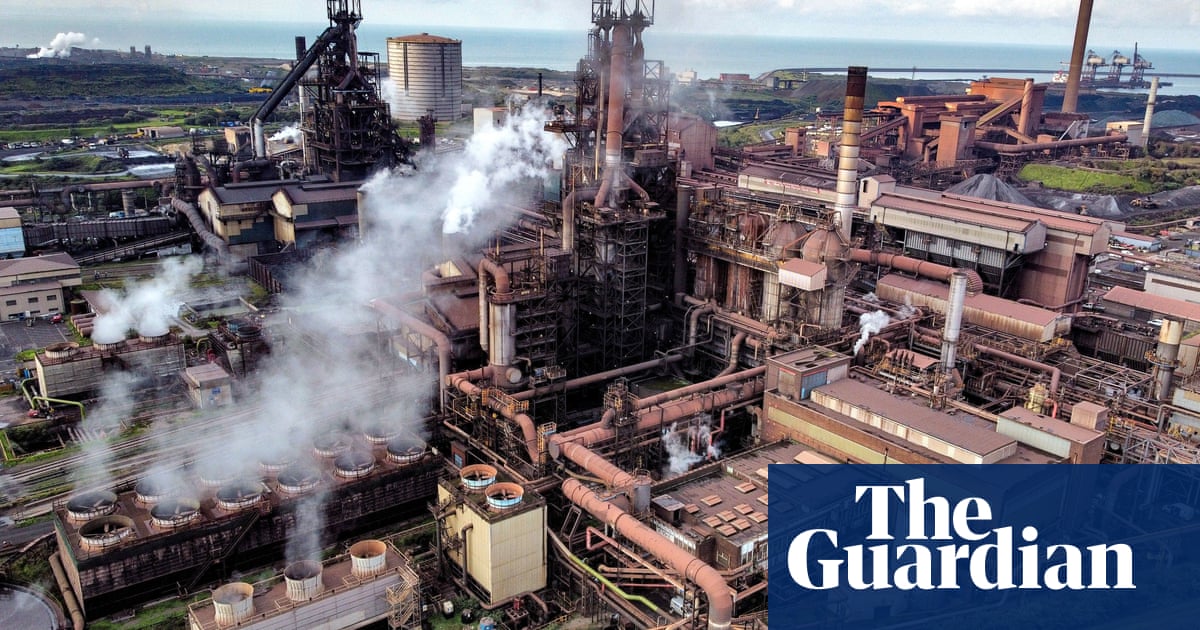Tata Steel rejects union plan to save jobs and keep Port Talbot furnace open

Tata Steel has rejected a plan by unions to keep open a blast furnace at the Port Talbot steelworks, ending any hopes of avoiding as many as 2,800 job losses.
Unions met the company in London on Thursday with another plea not to press ahead with its proposals, which will likely end the ability to make steel from iron ore in south Wales by September and cause thousands of job losses.
The first blast furnace is due to close at the end of June, followed by the second blast furnace and the “heavy end”, which makes steel from iron, in September. Tata Steel said it would open a voluntary redundancy scheme on 15 May.
Indian-owned Tata Steel announced the closure of two of the UK’s four active blast furnaces in January, in a major blow to Port Talbot. The town and its economy are dominated by the steelworks.
Tata plans to replace the two blast furnaces – which produce molten iron from iron ore – with electric arc furnaces. Tata on Thursday said it planned to place orders for the furnace equipment by September, and begin construction by August 2025.
Electrification is a much greener option as it does not rely on a chemical reaction that creates carbon dioxide. It will also represent a significant £1.25bn investment in the site. However, the newer technology will require many fewer workers.
The shift to new furnaces – which could cut UK emissions by about 2% if renewable electricity is used – is to be supported by about £500m in government subsidies.
The union plan would have kept a blast furnace in operation while building an electric arc furnace, saving jobs.
Tata Steel’s chief executive, TV Narendran, said: “Having looked carefully at all the options over the past seven months in consultation with union representatives, we have decided to proceed with our proposed restructuring and transition. This is the most viable proposal, in contrast to the unions’ unaffordable plan, which has high inherent operational and safety risk.”
Roy Rickhuss, the general secretary of the Community union, said Tata’s decision was a “destructive bad deal for steel” but added that “this isn’t over” as the union awaits a member vote on strike action.
“We do not accept the company’s assertion our plan was too expensive,” Rickhuss said. “In fact, it would have returned the company to profits, and the additional capital expenditure needed to make it a reality could have been funded by an additional £450m from the government – a drop in the water compared to what other European countries are investing in their domestic steel industries.”
The UK’s two other blast furnaces in Scunthorpe, run by Chinese-owned British Steel, are also due to close. That will leave the UK without the ability to make primary steel from iron ore, as electric arc furnaces will instead rely on scrap metal.
after newsletter promotion
The confirmation of Tata’s decision will bring the prospect of industrial action closer. Community, the union representing the most steelworkers, called for members to back its ballot to allow it to call a strike. Community and GMB, which also represents steelworkers, will close their ballots on 9 May.
Unite, another union, has been pushing for an even more ambitious plan for the UK steel industry that would include a subsidy for energy prices and ensure that no jobs are lost. That plan, which would rely on support from the government, has also been rejected by Tata. Unite’s steelworkers have already voted in favour of industrial action.
Unite’s general secretary, Sharon Graham, said: “Tata is an immensely profitable company using our outgoing government’s inadequacies to make easy money and boost its other operations at the expense of UK jobs and the national interest.”
Stephen Kinnock, the Labour MP for Aberavon, home of the Port Talbot steelworks, said the closure “will have a devastating impact on our local community as it will mean exporting well-paid jobs from Port Talbot to India, despite the country’s steel plants having a far higher carbon footprint”.
Tata is the country’s largest steel producer, employing about 8,000 staff in the UK, with about half based at Port Talbot.
Related
Llyods Recruiting Engineers In India After Slashing Jobs In UK
Lloyds Banking Group is planning to hire hundreds of engineers in India as the company plans to shift its employment opportunit
Major new funding for music acts that supercharged careers of…
£1.6m Music Export Growth Scheme to support 58 independent UK artists to tour the world Funding will boost UK’s creative industries – a key growth se
Well-loved restaurant chain to close 8 venues across UK as…
A BELOVED restaurant chain has announced it will close eight venues across the UK, scrapping 158 jobs in the process.Owners are pointing the finger at Labour's
US adds 151,000 jobs in February as unemployment rate ticks…
The latest figures published by the US Bureau of Labor Statistics today (7 March) came in below market expectations, with economists polled by












